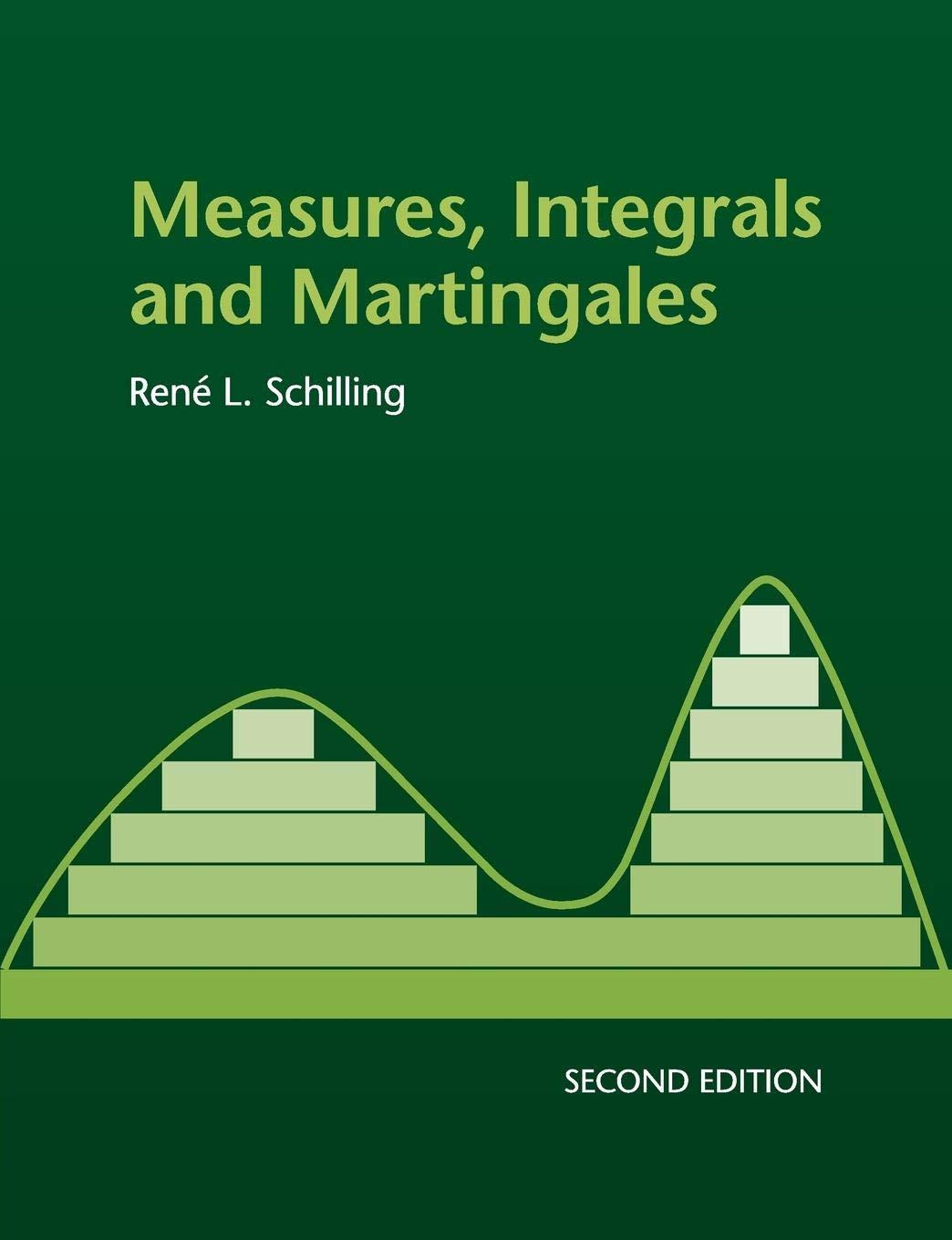Completion (2). Recall from Problem 9.14 that a measure space ((X, mathscr{A}, mu)) is complete if every
Question:
Completion (2). Recall from Problem 9.14 that a measure space \((X, \mathscr{A}, \mu)\) is complete if every subset of a \(\mu\)-null set is a \(\mu\)-null set (thus, in particular, measurable). Let \((X, \mathscr{A}, \mu)\)
be a \(\sigma\)-finite measure space - i.e. there is an exhausting sequence \(\left(A_{i}ight)_{i \in \mathbb{N}} \subset \mathscr{A}\) such that \(\mu\left(A_{i}ight)
(i) Show that for every \(Q \subset X\) there is some \(A \in \mathscr{A}\) such that \(\mu^{*}(Q)=\mu(A)\) and that \(\mu(N)=0\) for all \(N \subset A \backslash Q\) with \(N \in \mathscr{A}\).
[ since \(\mu^{*}\) is defined as an infimum, every \(Q\) with \(\mu^{*}(Q)
(ii) Show that \(\left(X, \mathscr{A}^{*},\left.\mu^{*}ight|_{\mathscr{A}} *ight)\) is a complete measure space.
(iii) Show that \(\left.\left(X, \mathscr{A}^{*},\left.\mu^{*}ight|_{\mathscr{A}}ight)^{*}ight)\) is the completion of \((X, \mathscr{A}, \mu)\) in the sense of Problem 4.15 .
Data from problem 9.14

Data from theorem 6.1
![(Carathodory) Let SCP(X) be a semi-ring and u: 8 [0,00] a pre-measure, i.e. a set function with (1) (0)=0;](https://dsd5zvtm8ll6.cloudfront.net/images/question_images/1705/6/3/5/77665a9efc09ea331705635776402.jpg)

Equation 6.1

Equation 6.2

Step by Step Answer:






